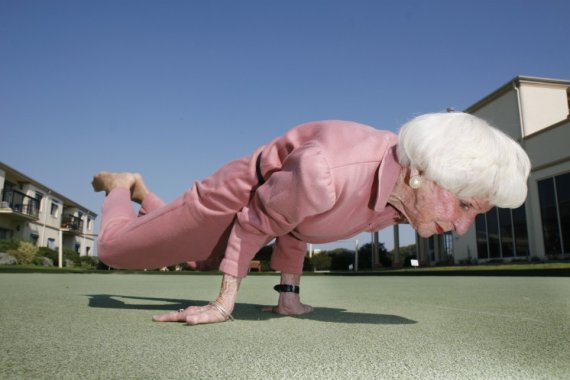Decrease in muscle mass among seniors can lead to greater dependence on care services.
After our thirtieth year of life, we lose muscle mass at a rate of 3 to 8 percent every ten years. Initially, these small changes in muscle mass can be easily compensated for by lifestyle adjustments. But as muscle mass and strength decline drastically, the risk of a fall increases and self-reliance diminishes. Consequently, seniors have greater difficulty in living independently and need to ask for help more often.
But the picture could be different. By retaining muscle, seniors are literally firmer on their feet. At least that is the idea behind the ProMuscle in Practice project, which Wageningen UR will be introducing in cooperation with healthcare institutions, an insurance company and industry. As of September, hundreds of seniors living independent lives in the Veluwe region will be doing twelve weeks of strength training. On the menu for them will be extra proteins in the form of dairy products and cakes – supplied free of charge by Friesland Campina and Innopastry. A control group of a hundred seniors will have neither the training nor the extra food.
Twice a week the seniors will train for close on an hour, explains project leader Esmée Doets of Food & Biobased Research. ‘Leg muscles, arms, upper body. In small groups and under the guidance of a physiotherapist. In addition, a dietician will help them establish how they can increase their protein intake.’ Doets says the intention is to have the seniors consume 25-30 grams of protein per main meal. ‘Especially at breakfast and lunch they are often consuming less than that.’

